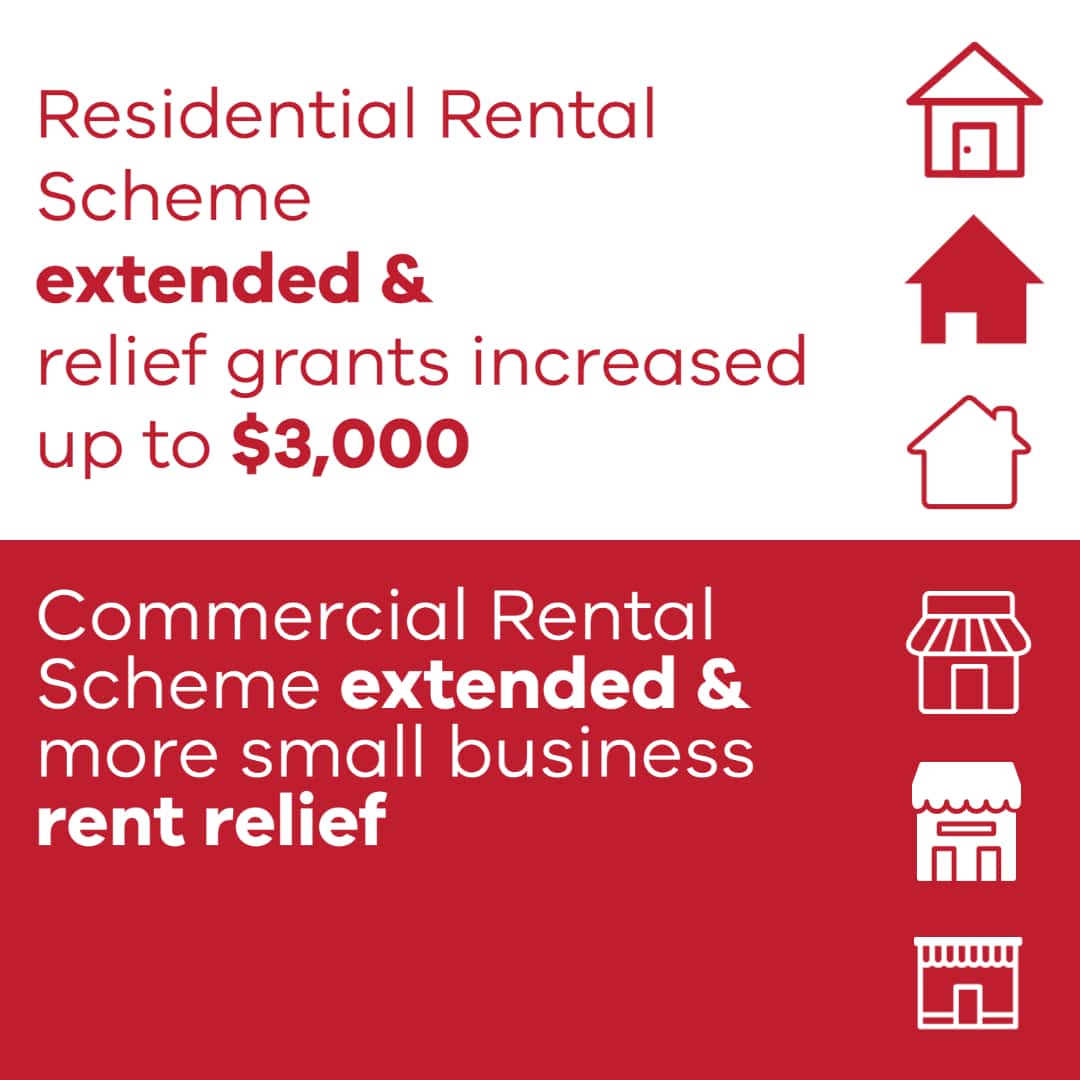The Victorian Government will extend a ban on evictions and rental increases until the end of the year, increase assistance and ensure tenant turnover is taken into account in rental negotiations – giving tenants certainty and security they won’t lose their home or workplace during the pandemic.
Under the extension, evictions will continue to be banned for both residential and commercial tenancies until December 31, except in specific circumstances. Rental increases continue to be banned for the same period.
In the past four months, close to 26,000 agreements for reduced rent have been registered with Consumer Affairs Victoria (CAV), with advice and dispute resolution services accessed more than 80,000 times.
Of these contacts, more than 90 per cent have found solutions through CAV’s ‘front door’ service, including more than 8,400 cases resolved through its Residential Tenancies Dispute Resolution Scheme.
These services will continue to remain in place, assisting more residential tenants and landlords who might be struggling to reach an agreement over rent reductions.
The Victorian Small Business Commission (VSBC) offers a similar service for commercial tenancies and has fielded more than 7,900 rent-related enquiries from small business owners and landlords. Of the cases reaching mediation, more than 90 per cent have resulted in tenants and landlords reaching common ground.
We’ve always said to get through this virus, Victorians have to work together, and that partnership needs to continue – with tenants, landlords, banks and government all working together to keep Victorians in their homes and businesses.
To ensure greater fairness – and support small local businesses – additional measures will also be introduced, with commercial landlords required to provide rent relief in proportion with the fall in turnover being experienced by eligible tenants going forward. After ongoing engagement with small business, the VSBC will now also have greater capacity to make an order on rent relief if a landlord refuses to respond to rent relief requests.
Residential and commercial tenants and landlords will also be able to take advantage of more support, including further land tax reductions and more grant funding.
Eligible residential tenants and landlords will be supported with up to $3,000 in rental payments as part of the Rental Relief Grant program, with new recipients able to apply for the full amount, and up to $1,000 extra available for previous recipients.
Residential and commercial landlords may also be eligible for an increased land tax discount – now up to 50 per cent – doubled from the earlier 25 per cent. A fund of $60 million for eligible small commercial landlords will be available via a hardship scheme, which will provide up to $3,000 per tenancy.
Eligible small businesses that own their own commercial premises will also now benefit from land tax relief.
The Government is also encouraging banks to continue working with their customers, both residential and commercial, who are struggling to pay their mortgage as a result of the pandemic.
It will also ensure information about the Government’s residential tenancies dispute resolution scheme is reaching Victorians from culturally and linguistically diverse communities, along with direct client support.
“No one should have to be worried about losing a roof over their head right now. This will give tenants certainty and security that they won’t lose their home or business while we fight this deadly pandemic.”
— Premier Daniel Andrews
“The partnership already shown has been remarkable. To get through this though, all of us – tenants and landlords, businesses and government – need to continue working together.”
— Treasurer Tim Pallas
“Extending the ban on evictions and rental increases is an important step in ensuring we help tenants and landlords get through the coronavirus pandemic and out the other side.”
— Minister for Consumer Affairs Melissa Horne
“Fairness is a two-way street and we’re providing the support that means tenants and landlords can continue to work together to find common ground.”
